Community
Copyright@ Australian Catholic University 1998-2026 | ABN 15 050 192 660 CRICOS registered provider: 00004G | PRV12008
Copyright@ Australian Catholic University 1998-2026 | ABN 15 050 192 660 CRICOS registered provider: 00004G | PRV12008
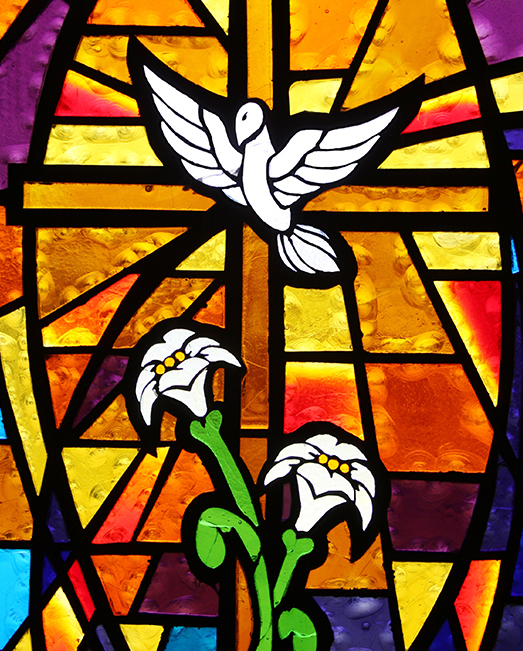
Are faith and reason in conflict, or do they illuminate one another? We tackle an age-old question with Professor Hayden Ramsay, a Catholic philosopher and ACU’s Pro Vice-Chancellor Assisting the Vice-Chancellor.
“The Catholic Intellectual Tradition is basically an attempt by scholars and students, within the architecture of the faith, to work out the basic truths about God, the world, people and morality.
Beginning with Christ himself and the people he spoke to, the Christian faith was about ideas … extraordinary ideas that literally changed the world. God really loves you. Love your neighbour. Forgive your enemies. Give to all who need. God loves everyone equally. Taken together, such ideas were revolutionary.
Throughout the history of the Church, these ideas have been handed on, not like pieces of stone, but as any idea is handed on: as something people reflect on, struggle with, attempt to keep intact, contribute to. The key ideas in a living tradition don’t change in their substance, because the ideas are so rich you don’t need to change them, but we unpack them and apply them differently across cultures and times.”
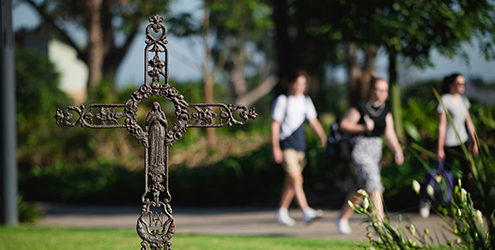
“The Catholic intellectual Tradition says that faith and reason — religion and science — are fully compatible. In other words, anything that is scientifically true is consistent with Christian faith, and anything that’s religiously true is consistent with good science. If faith and reason disagree, it must be bad science, or bad religion, or both.
Trying to demonstrate that faith and reason are one is a completely different way of being a university. Secular universities in Australia are edgy about religion, often uncomfortable about faith, or at least Catholic faith, but a Catholic university believes there is a role for religion and that this affects how we live and teach and learn.
That doesn't mean teachers set out to convert non-Catholic students or get them to believe your religion … it means you take seriously the matters of life’s meaning and the nature of morality. So inside a Catholic university, the study of ethics and the good life for human beings plays a major role within all disciplines and vocations. You don't find that in many other universities.”
“Faith without reason — a non-reasoning faith, an un-thinking faith — at its worst we've got a word for that: ‘fundamentalism’. We all know that fundamentalism can lead to bombs and bullets, or at least to spitting and fistfights, and that can happen in any religion.
Faith requires reason; it gains from serious thought and critical reflection. It grows by being reflective and serious and in dialogue with other forms of thinking.
Faith needs reason, and the first Catholic universities also argued that reason needs faith. The human mind cannot grasp all possibilities on its own. Faith provides some ideas for the human mind that reason couldn't give. It actually increases the scope of reason.
So in answer to your question, yes, faith and reason is key, which is countercultural in Australia. And I believe it’s a very precious thing which a Catholic university offers: a dialogue between faith and reason in which it is understood both must play an essential part.”
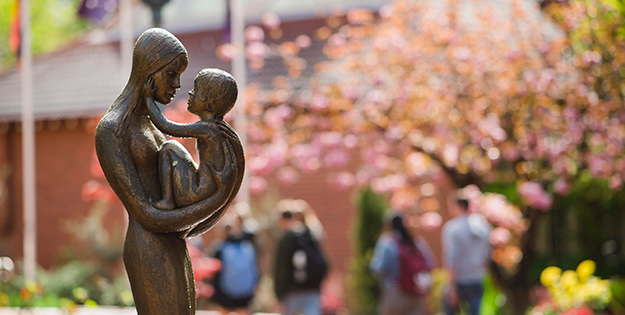
“I think the differences are quite subtle, but really, really authentic. We teach a huge number of health students, education students, law students, business and humanities students… and we teach them everything good that all 40 secular universities in Australia teach in their degrees; but we add something.
We add to our health degrees the ethics and bioethics of healthcare in the great Catholic tradition. In our law degrees we teach civil and natural law and questions of basic human rights. In our business degrees we add the tradition on the common good and the duties of businesses to support the poorest of the poor. So on a practical level, you're going to get everything you get everywhere else, and a bit more.
When I studied philosophy in Scotland we jumped from Aristotle to Descartes – almost the same gap as the period of time between Jesus’s birth and the present day. That was to miss out medieval philosophy, the strongly Christian part. Catholic universities make sure there are no arbitrary gaps.
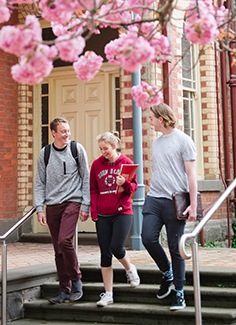
Undergraduate students complete the Core Curriculum as part of their degree, which looks at the need for Catholicism to translate into action, social action for the overall good of society, and for protection of the dignity of the poorest and most vulnerable. So all our students are encouraged to become active through service learning and to be involved in one of the university's many community projects.”
“Great Catholic theologians and philosophers devised the tools for freedom and academic freedom centuries ago. In a Catholic university, academic freedom means that within our respect for the truth and the common good, people should follow the autonomy of their own researches and their disciplines to reach the best results they can.”
"Yes it must be — there is absolutely no question about that.
Whether you're a secular university or a Catholic university, you must teach all the facts and give the strongest reasons you can for every point of view, not just your own point of view.
For example, I used to contribute some teaching to a medical school. If you look at the area of human fertility, the students must know all the facts about contraception, and as a Catholic university we teach everything that would be taught in any other medical school. The difference is that in a Catholic university, the students would also be taught about natural family planning, and they would be taught that deciding between the two requires developing a moral context for yourself and doing some hard thinking.
So, you teach everything that’s taught elsewhere and upheld by the professions, and you may even add perspectives that other universities omit. But you always give the very best argument you can for everything you teach, because that's what an academic does. And as always, it’s up to the students to consider the arguments and think for themselves. No one should ever tell a student what to think — though we should present and explore the best examples of how to think.”
“There are various special things about ACU that you’re not going to get in non-Catholic universities. Firstly, there are very few universities in Australia that would use the word ‘love’. We will say that we literally have a love for our students and our staff and our common life, and that helps ensure that ACU is a place where there is a very high level of care and a sincere respect for people.
Secondly, if you go to a Catholic university and you're not a Catholic, the Catholic Intellectual Tradition will give you one particular take on the deep questions to ask and the deep answers that can be given on how human life should go.
You might not believe any of it, you might have a completely different view, but I think there is real use culturally, intellectually and developmentally in having a look from top to bottom at how one system presents itself.
It’s a huge privilege to be able to study at university. At the end of it you should have the tools to come to some sort of unified view of your own about what matters, and to enter into a dialogue with people who have come to a different view. Getting qualified for a job is seriously important, but so is being prepared for life —and life with people different from yourself.”
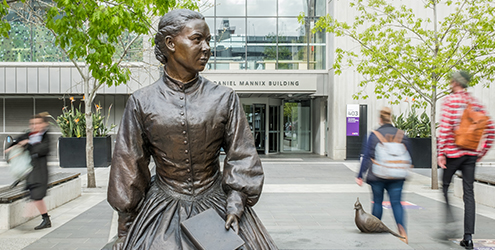
“Great question! They need to contribute their wonderful young minds. Question whatever you like and really rip into the whole thing; but you must be willing to give reasons to back up your view. That’s what makes a university different from a pub. In a pub you can say whatever you like. You might get yourself into trouble, but you can say it. In a university, you can say whatever you like if you can give reasons for your view. Your reasons may not be adequate — they'll be critiqued by other people — but you have to be prepared to back up your view.
So the way that students can contribute, whether Catholic or from some other faith or tradition, is to speak up, argue, debate, give reasons. Don’t dismiss — question. Sometimes people will get angry with the Catholic worldview, but in a university you should be able to express this calmly and give reasons for where you stand. You'll find it's a very safe place here in which to do that.”
“A lot of people think of a university today as a place to get a qualification for a job, and that is one thing a university does, but in our Tradition, the key to understanding a university is to grasp that it’s also there to keep alive the life of the mind, and that includes your mind.
It is deeply inside every young person who‘s lucky enough to have the use of their mind to ask deep questions: Where did we come from? Are we going anywhere? Is there life after death? Is anything really true or is it all just someone's opinion? Why is there so much pain? Is it part of my duty to do something about it?
Those are philosophical, ultimately spiritual, questions. The intellectual tradition practised in great Catholic universities is necessary because it has extraordinary potential to shake up our everyday assumptions. It can lead us to think more for ourselves and not just to fit in with others. It can deepen our questions, and it sure will open up answers we hadn’t dreamt of previously.”
Hayden Ramsay is ACU’s Pro Vice-Chancellor Assisting the Vice-Chancellor and President and Professor of Catholic Philosophy. Find out more about ACU’s Mission and values.
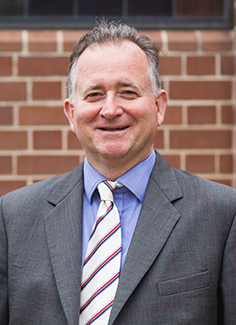
Copyright@ Australian Catholic University 1998-2026 | ABN 15 050 192 660 CRICOS registered provider: 00004G | PRV12008